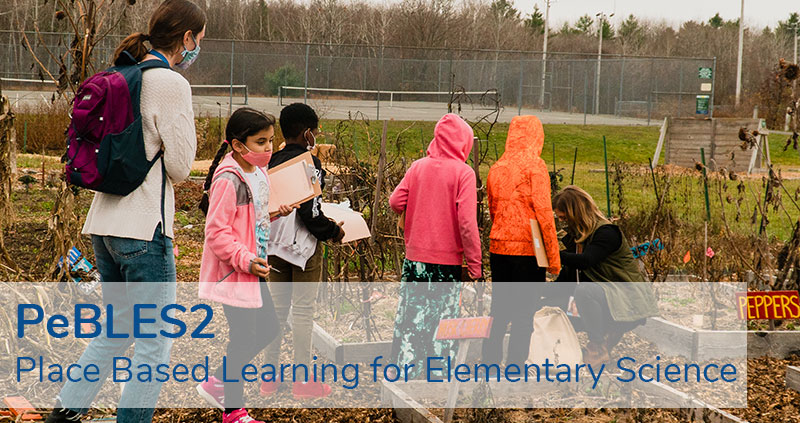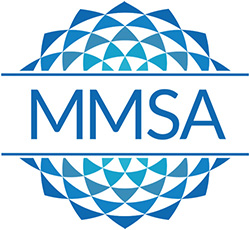 In the PeBLES2 (Place Based Learning for Elementary Science at Scale) project, we are working with teachers, scientists, and researchers to co-design two locally adaptable units of instruction and supporting professional learning for 3rd and 4th grade and study how teachers bring the materials to life in their contexts. The instructional materials (units and professional learning) are designed to help teachers support students as they dig deeply into scientific sensemaking about locally and culturally relevant phenomena. Teachers will be able to confidently “choose their own adventure”, making small or big tweaks to base units to root science learning into their “place”. This is a tall order for curriculum design and professional learning support and one we are excited to tackle.
In the PeBLES2 (Place Based Learning for Elementary Science at Scale) project, we are working with teachers, scientists, and researchers to co-design two locally adaptable units of instruction and supporting professional learning for 3rd and 4th grade and study how teachers bring the materials to life in their contexts. The instructional materials (units and professional learning) are designed to help teachers support students as they dig deeply into scientific sensemaking about locally and culturally relevant phenomena. Teachers will be able to confidently “choose their own adventure”, making small or big tweaks to base units to root science learning into their “place”. This is a tall order for curriculum design and professional learning support and one we are excited to tackle.
Our goal, in our first round of design and piloting, was to create a 3rd grade unit focused on environmental change. We developed a 6-week unit focused on the question, “How do [stuff people build] affect how animals survive in [their place]?” The base unit frames the question as “How do roads affect how animals survive in Yellowstone National Park?” Eventually, teachers may swap out the anchoring phenomenon in the base unit to be more locally or culturally relevant. For instance, a teacher working with students living near a ski mountain might locally adapt the unit to ask, “How does a new ski lift affect how animals survive on the mountain?” Teachers may also choose to localize by swapping out individual lessons with local investigations.
For the pilot, we intended for teachers to implement the unit, as written. We did NOT anticipate teachers who were brand new to the unit to also dabble in localizing – but instead to work up to that in years two and three of implementation. Beyond the heavy lift of learning a three-dimensionally designed science unit, the realities of the pandemic have put a strain on many teachers; our pilot teachers are no exception. We were pleasantly surprised to find, however, that with very little prompting, our teachers are eager to localize these units. One of the pilot teachers is thinking carefully about how to localize the learning by working in an outdoor space at her school. In a recent meeting, another pilot teacher gleefully held a Scholastic News up to the zoom screen – showing the lead article and how it related to the project.
We couldn’t be more excited about this message, sent to the cohort of pilot teachers, via our gChat channel. After only a few weeks of interacting with the materials, our Professional Learning and Research teams, and her cohort, Sarah is providing critical insight into the heart of our project. Her desire to provide more local adaptation opportunities is precisely what we hoped to see! We can’t wait to see how Sarah adapts our materials to provide place-based opportunities for her students.
The desire to make learning relevant for their students is coming across loud and clear to our PeBLES2 team. Teachers are innovators, by nature, and are already taking these units and rooting them in their places. We can’t wait to see what the next round of piloting brings!


